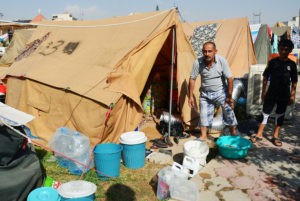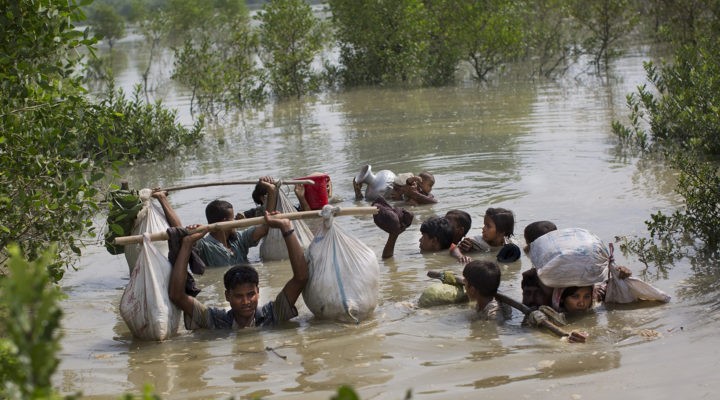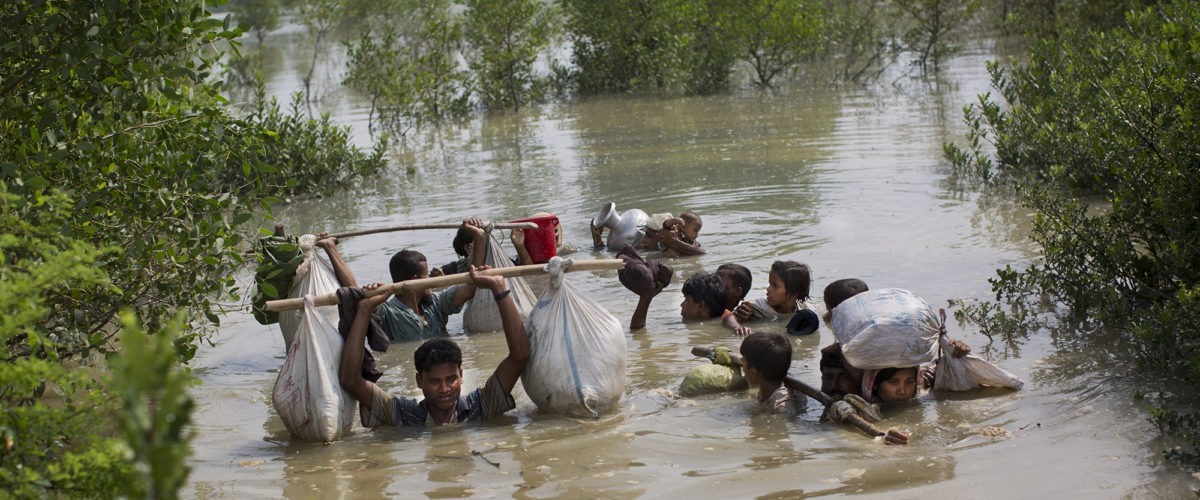Government restrictions of religion are increasing around the world, with the Asia Pacific region leading the way, according to a new study by the Pew Research Center.
And while the report identified China and Myanmar, as leaders in official efforts to suppress religious groups, faith leaders who support missionaries and overseas congregations say it’s often difficult to pinpoint the worst spots.
“The order varies from year to year, although for the year or two prior to COVID, China probably has been the most difficult. But there were challenges in the Middle East, too,” said Steven Porter, global missions coordinator for the Cooperative Baptist Fellowship.
Nations known for attempting to quash religious belief and practice may ease up on faith groups for a time, while others ramp up restrictions to take the lead, said Porter, who oversees CBF field personnel serving in 25 countries. “Some regions/countries exhibit an ebb and flow of restriction and relaxation. I think of China like that.”
Pew Research’s 11th annual study on international restrictions on religion tracked both government efforts to curtail faith, including banning religious groups, and incidents of violence against religious minorities perpetrated by mobs and others driven by sectarian zeal.
Using a 10-point scale, Pew reported that international restrictions increased to 2.9 in 2018, the latest year of available data. That was a slight elevation from the 2.8 rating recorded in 2017.
“While the index increase in 2018 was relatively small, government restrictions have grown substantially from a median score of 1.8 in 2007,” Pew said of the first year of the study.
“At the same time, the number of countries with ‘high’ or ‘very high’ levels of government restrictions has also been climbing. Most recently, 56 countries — or 28% of all 198 countries and territories in the study — fell into one of those two categories.”

This 2014 photos from Erbil, Iraq, shows Christian refugees camping out on the premises of a Catholic church in the Kurdish autonomous region, northern Iraq (Kyodo)
The targets of government restrictions include Christians, Muslims and Jews, with the countries with the highest increases located in Asia and the Pacific.
“The median score among the Asia Pacific region’s 50 countries rose to 4.4 in 2018 from 3.8 a year earlier,” Pew reported. “In 2018, roughly six-in-10 countries in the region (62%) experienced some level of government force related to religion, up from about half (52%) in 2017.”
Displacement of Christians, including Baptists and Hindus and Muslims, continues in Myanmar, while 1,500 Muslims were imprisoned in Uzbekistan in 2018.
Meanwhile, nations in the Middle East and North Africa are identified in the report for having the highest level of restrictions, with the median scored at 6.2 out of 10.
“Most countries in the region had reports of governments harassing religious groups, interfering in worship, favoring some religious groups and using force against others,” according to the study. “In Algeria, for example, authorities detained several Christians for violating a ban on proselytizing by non-Muslims. Separately, authorities in the country also prosecuted 26 Ahmadi Muslims for ‘insulting the precepts of Islam.’”
What Pew calls “social hostilities” against religious individuals and groups actually fell overall from 2.1 in 2017 to 2.0 in 2018, in part because there were fewer reports of incidents involving majority faiths suppressing religious minorities.
There were 53 nations with such incidents in 2018, compared to 56, 54, 53 and 45 nations in the years before, respectively.
“China had the highest levels of government restrictions, and India had the highest levels of social hostilities.”
Some nations among the 25 most populous also experienced the highest overall levels of both religious restrictions and social hostilities, Pew said. These include Egypt, India, Indonesia, Pakistan and Russia. “China had the highest levels of government restrictions, and India had the highest levels of social hostilities — not just among the most populous countries, but among all 198 countries in the study.”
China’s index score for restrictions was 9.3, while India’s social hostilities index was 9.6, down from 9.7 in 2016, Pew reported. “India also ranks high on government restrictions and reached an all-time high in its government restrictions score (5.9 out of 10).”
The only increases of social hostility levels occurred in the Americas, Pew added.
The largest increase occurred in El Salvador in March 2018 when a group of Catholics observing Holy Week were robbed and their priest killed.
“Still, the Americas continued to have the lowest overall median level of social hostilities of the five geographic regions analyzed in the study,” Pew noted. “Social hostilities scores in Asia and the Pacific remained stable, and three other regions — sub-Saharan Africa, Europe and the Middle East-North Africa — experienced declines.”
The polling organization identified Christians, Jews and Muslims as the most oppressed people worldwide.
The polling organization identified Christians, Jews and Muslims as the most oppressed people worldwide.
“Christians and Muslims — who make up the largest faith groups globally and are more geographically dispersed than other groups — experienced harassment in the highest number of countries (145 and 139 countries, respectively).”
The Baptist World Alliance has issued its own global assessment of religious persecution. It reports that 27% of BWA’s 47 million members and 36,000 of its churches face significant levels of vulnerability from violence, challenges to religious freedom, hunger and economic hardship.
The Central African Republic, Nigeria, Sudan, Syria and Ethiopia are the top five nations where the alliance’s members and churches are most vulnerable, according to the BWA index, which covers 2020 and 2021.
Whatever the form, intensity and frequency of restrictions, they leave targeted groups reeling, Porter added.
“The crackdowns may be quite difficult, but there are other places that are more consistently restrictive,” he said. “Perhaps not as bad as a crackdown in a place like China, but they never relax restrictions. So, it creates a permanent traumatic state.”


